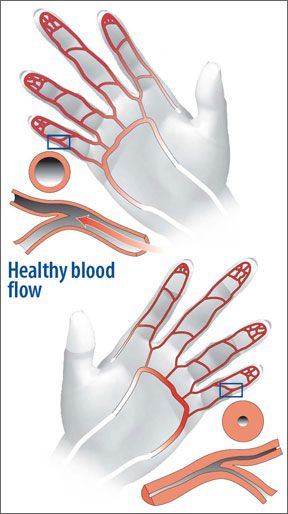When you step out into the cold, your blood vessels constrict to conserve heat, which immediately forces the heart to work harder to pump blood throughout the body. This is why the number of heart attacks tends to rise in the winter. Heart failure patients are especially vulnerable to cold weather exertions, as weaker hearts may not be able to pump enough blood to meet the need of a body engaged in activities such as shoveling snow or even walking for an extended period. But many winter-related vascular conditions are less serious, though they can lead to some discomfort and complications if left untreated, says Cleveland Clinic vascular specialist Heather Gornik, MD.
To continue reading this article or issue you must be a paid subscriber.
Sign in






